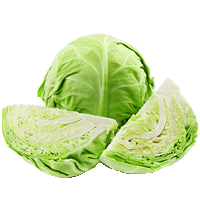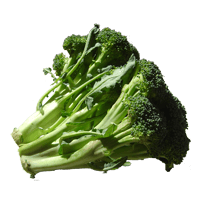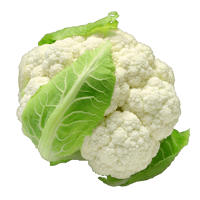Napa cabbage nutrition: calories, carbs, GI, protein, fiber, fats
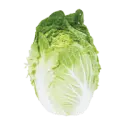
Carbs in Napa cabbage
The water content of Napa cabbage is 96%. Carbs make up the majority of the remaining 4%. There are 2.23g of carbohydrates per 100g of this food. This amount is equivalent to 1% of daily carbohydrate requirements. Napa cabbage is lower in carbs than 67% of foods.
Macronutrients chart
Carbs per serving size
The serving size for Napa cabbage is 1 cup (109g). This amount contains 2.43g of carbs.
Napa cabbage net carbs and fiber
Net carbs are counted by subtracting fiber amounts from the carb content of the food. Napa cabbage does not contain fiber, so the net carb amount equals its general carb content (2.23g).
However, according to the U.S. Department of Agriculture, raw Pe-tsai or Napa cabbage contains 1.2g of fiber per 100g (1).
Napa cabbage calories
Napa cabbage is a low-calorie food. A 100g of it contains only 12 calories.
Because this kind of cabbage provides only 1% of daily calorie needs, it is a perfect option for a low-calorie diet.
Calories per serving size
Napa cabbage is serveNapa cabbage's calorie content and calories.
Comparison
Napa cabbage is lower in calories than 99% of foods.
Napa cabbage is lower in calories than cabbage, cauliflower, and even more than broccoli.
The table below shows the calorie content of Napa cabbage and some other foods.
| Food | Calories |
| Broccoli | 34 |
| Red cabbage | 31 |
| Savoy cabbage | 27 |
| Cabbage | 25 |
| Cauliflower | 25 |
| Napa cabbage | 12 |
Burning estimates
The table below illustrates how long it takes to burn 12 calories (1 cup of Napa cabbage) and what activity is required. The period was evaluated using the MET approach (Metabolic Equivalent of a Task) (2) (3).
| 1 cup - 70kg person | 1 cup - 100kg person | |
| Walking | 3 min | 2 min |
| Running | 2 min | ~2 min |
| Cycling | 2 min | 1 min |
Top nutrition facts for Napa cabbage

| Calories ⓘ Calories for selected serving | 12 kcal |
| Glycemic index ⓘ Gi values are taken from various scientific sources. GI values less than 55 are considered as low. Values above 70 are considered as high. | 32 (low) |
| Glycemic load | 1 (low) |
| Net Carbs ⓘ Net Carbs = Total Carbohydrates – Fiber – Sugar Alcohols | 2 grams |
| Default serving size ⓘ Serving sizes are mostly taken from FDA's Reference Amounts Customarily Consumed (RACCs) | 1 cup (109 grams) |
| Acidity (Based on PRAL) ⓘ PRAL (Potential renal acid load) is calculated using a formula. On the PRAL scale the higher the positive value, the more is the acidifying effect on the body. The lower the negative value, the higher the alkalinity of the food. 0 is neutral. | -1.2 (alkaline) |
| Oxalates ⓘ https://www.sciencedirect.com/science/article/abs/pii/S0889157513000902 | 4 mg |
Napa cabbage calories (kcal)
| Calories for different serving sizes of napa cabbage | Calories | Weight |
|---|---|---|
| Calories in 100 grams | 12 | |
| Calories in 1 cup | 13 | 109 g |
| Calories for different varieties of napa cabbage | Calories | Weight |
|---|---|---|
| Cabbage, napa, cooked (this food) | 12 | 100 g |
| Cabbage, kimchi | 15 | 100 g |
| Cabbage, cooked, boiled, drained, without salt | 23 | 100 g |
| Cabbage, savoy, cooked, boiled, drained, without salt | 24 | 100 g |
| Cabbage, savoy, cooked, boiled, drained, with salt | 24 | 100 g |
| Cabbage, mustard, salted | 28 | 100 g |
| Cabbage, red, cooked, boiled, drained, without salt | 29 | 100 g |
| Cabbage, red, cooked, boiled, drained, with salt | 29 | 100 g |
| Cabbage, japanese style, fresh, pickled | 30 | 100 g |
Napa cabbage Glycemic index (GI)
Napa cabbage Glycemic load (GL)
Mineral coverage chart
Mineral chart - relative view
Vitamin coverage chart
Vitamin chart - relative view
All nutrients for Napa cabbage per 100g
| Nutrient | Value | DV% | In TOP % of foods | Comparison |
| Vitamin A | 13µg | 1% | 47% | |
| Calories | 12kcal | 1% | 99% |
3.9 times less than Orange
|
| Protein | 1.1g | 3% | 84% |
2.6 times less than Broccoli
|
| Fats | 0.17g | 0% | 89% |
195.9 times less than Cheese
|
| Vitamin C | 3.2mg | 4% | 32% |
16.6 times less than Lemon
|
| Net carbs | 2.2g | N/A | 65% |
24.3 times less than Chocolate
|
| Carbs | 2.2g | 1% | 67% |
12.6 times less than Rice
|
| Cholesterol | 0mg | 0% | 100% |
N/A
|
| Vitamin D | 0µg | 0% | 100% |
N/A
|
| Magnesium | 8mg | 2% | 87% |
17.5 times less than Almonds
|
| Calcium | 29mg | 3% | 44% |
4.3 times less than Milk
|
| Potassium | 87mg | 3% | 85% |
1.7 times less than Cucumber
|
| Iron | 0.74mg | 9% | 69% |
3.5 times less than Beef broiled
|
| Copper | 0.1mg | 11% | 55% |
1.5 times less than Shiitake
|
| Zinc | 0.14mg | 1% | 88% |
45.1 times less than Beef broiled
|
| Phosphorus | 19mg | 3% | 89% |
9.6 times less than Chicken meat
|
| Sodium | 11mg | 0% | 85% |
44.5 times less than White bread
|
| Manganese | 0.2mg | 9% | 51% | |
| Selenium | 0.4µg | 1% | 91% | |
| Vitamin B1 | 0.01mg | 0% | 95% |
53.2 times less than Pea raw
|
| Vitamin B2 | 0.03mg | 2% | 89% |
5.2 times less than Avocado
|
| Vitamin B3 | 0.47mg | 3% | 79% |
20.5 times less than Turkey meat
|
| Vitamin B5 | 0.04mg | 1% | 95% |
32.3 times less than Sunflower seeds
|
| Vitamin B6 | 0.04mg | 3% | 85% |
3.2 times less than Oats
|
| Vitamin B12 | 0µg | 0% | 100% |
N/A
|
| Folate | 43µg | 11% | 37% |
1.4 times less than Brussels sprouts
|
| Trans fat | 0g | N/A | 100% |
N/A
|
Check out similar food or compare with current
NUTRITION FACTS LABEL
Serving Size ______________
Health checks
Napa cabbage nutrition infographic
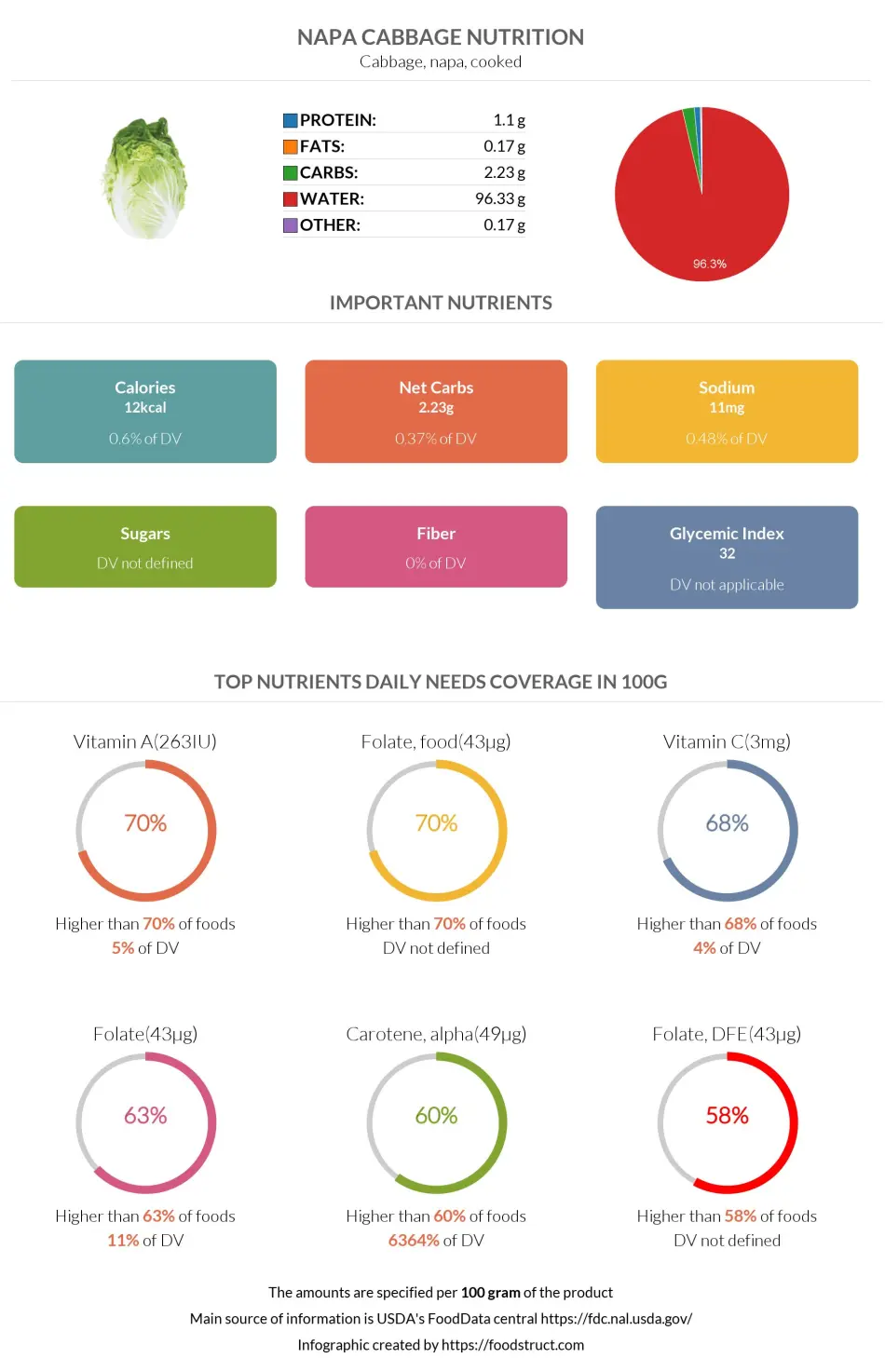
References
All the values for which the sources are not specified explicitly are taken from FDA’s Food Central. The exact link to the food presented on this page can be found below.

